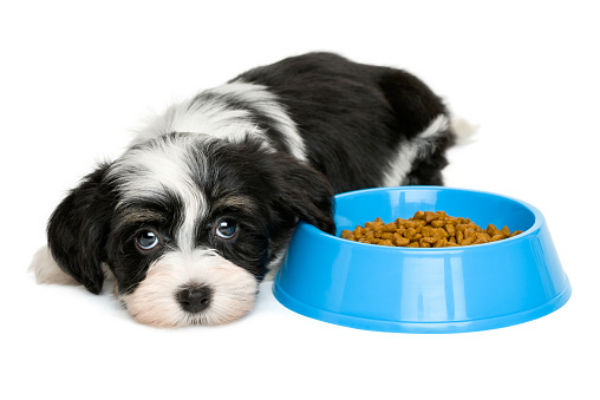When it comes to diet for our dogs, there are countless options available. Canned foods, kibbles, raw foods, dehydrated foods—the possibilities and brands offered are essentially endless. Owners shouldn’t focus on brands or types, but on quality of nutrition in the foods available. This is because proper nutrition is one of the most important aspects of life, including the lives of our dogs. Adequate food and nutrition help keep you dog active and happy while preventing many ailments associated with a poor diet. In fact, some of the most common problems veterinarians see today are related to a lack of quality nutrition. Remember that what works for one dog may not work for the next, so do your own research (start with speaking with your veterinarian) and do not base your choice on what everyone else is feeding.
If your dog suffers from any of these conditions, you might want to start looking at his diet.
- Obesity – Obesity is a growing problem in dogs around the world. Looking at the calorie content of your dog’s food will help you determine if your dog is eating too much. Many owners find that following the recommended serving sizes on their food’s packaging often leads to a very overweight dog. Consider how active your dog is and what type of ingredients are making up the calories in his food. Working and active dogs are going to need a lot more calories than your average pet. Many ingredients, such as corn and soy, are often packed with calories, but offer little to no nutrition—therefore making it necessary for your dog to consume more food in order to get enough vitamins and minerals. This leads to an increase of calories, which leads to obesity.
- Poor Skin and Coat Condition – The skin is the largest organ of the body for all animals and is affected by nutrition. A diet that is lacking essential fatty acids is going to quickly be reflected in your dog’s skin and coat condition. Dull, brittle coats and dry, flaky skin may be signs that your dog isn’t getting enough nutrients. Other causes are allergies and endocrine, such as thyroid. The omega-3 fatty acids that your dog is most commonly deficient in are those found in fish and flaxseed oils. Fortunately, adding these essential fatty acids is becoming a popular trend in foods, so a deficiency is becoming less common. Still, if your dog is showing poor skin and coat condition, you might want to look at the food he's eating and consult with your veterinarian.

- Reduced Immunity – A lack of proper nutrition means your dog’s body isn’t getting what it needs to function at the highest level. One of the first things to begin suffering is the immune system. You might see this appear as wounds that don’t heal, infections that take longer to clear up, or even allergies. While your dog may be allergic to some of the ingredients in his food, it’s also likely that he will become sensitive to environmental allergies. The immune system will struggle to control a yeast or fungal infection on its own, leading to an increase in hot spots and ear infections. Some owners have claimed that a change in diet has alleviated environmental allergies in their dogs by strengthening the immune system.
- Pancreatitis – Pancreatitis is a very serious condition that may be related to a poor diet. This inflammation of the pancreas leads to the leakage of digestive enzymes, causing the pancreas to begin digesting itself. There are acute and chronic forms, both related to poor diet, and both are life-threatening conditions. Dietary fat is known to be associated with pancreatitis in dogs, and that’s why we often see the acute condition after a dog gets table scraps of bacon or other high-fat foods. A diet high in unnecessary fats from grains is also thought to contribute to chronic pancreatitis. Veterinarians have found that the more processed the foods, the higher the potential risk of pancreatitis in dogs.
- Diabetes – Just like in people, diabetes in dogs is often associated with a poor diet. Diabetes mellitus is the type most often seen in dogs and is often a genetic condition. It may also be a secondary condition related to improper nutrition. Diabetes has many causes, but is often triggered by obesity and chronic pancreatitis—both related to the quality of diet consumed by the dog. Although diabetes cannot be cured, it can be controlled with insulin injections and a strict diet. Avoiding foods that contain complex carbohydrates, such as corn, soy, rice, breads, and other grains, will help reduce the risk for diabetes and help manage it should your dog be diagnosed.
This article is intended solely as general guidance, and does not constitute health or other professional advice. Individual situations and applicable laws vary by jurisdiction, and you are encouraged to obtain appropriate advice from qualified professionals in the applicable jurisdictions. We make no representations or warranties concerning any course of action taken by any person following or otherwise using the information offered or provided in this article, including any such information associated with and provided in connection with third-party products, and we will not be liable for any direct, indirect, consequential, special, exemplary or other damages that may result, including but not limited to economic loss, injury, illness or death.



